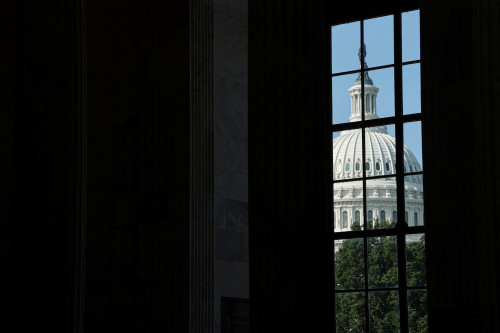
Senate panel approves $500 million aid for Ukraine in defense bill
By Mike Stone
WASHINGTON (Reuters) -The Senate Armed Services Committee has approved $500 million in security assistance for Ukraine as part of its draft language for its Fiscal Year 2026 National Defense Authorization Act, which also restricts A-10 aircraft retirements.
The National Defense Authorization Act (NDAA) is an annual policy bill that authorizes funding levels and provides authorities for the U.S. military.
It ensures that American forces have the necessary resources to carry out their missions and is closely watched by weapons makers like Lockheed Martin Corp and Boeing Co.
The NDAA, passed by the Senate Armed Services Committee with a vote of 26-1 on July 9, 2025, includes a provision to extend the Ukraine Security Assistance Initiative through 2028, increasing authorized funding to $500 million from $300 million in 2025.
The initiative aims to bolster Ukraine’s defense capabilities as it battles Russian forces which invaded in 2022.
The bill also prohibits a controversial request made in President Donald Trump’s June budget request to retire the Air Force A-10 fleet. The draft requires that the inventory of the A-10 cannot drop below 103 aircraft in FY26, ensuring the continued operation of these close air support planes.
The draft of the bill will make its way through the legislative process in the coming months. The lower House of Representatives kept Ukraine support at $300 million in its version.
The NDAA supports a total of $925 billion in funding for national defense, with $878.7 billion allocated to the Department of Defense and $35.2 billion to the Department of Energy. The bill also allows for up to $6 billion in general transfer authority for unforeseen higher-priority needs.
In addition to Ukraine, the NDAA addresses various global security challenges, including threats from China, Iran, and North Korea.
It emphasizes the need for technological advancements in areas such as artificial intelligence, unmanned technology, and hypersonic weapons to maintain U.S. military superiority.
(Reporting by Mike Stone in Washington; editing by Philippa Fletcher)

